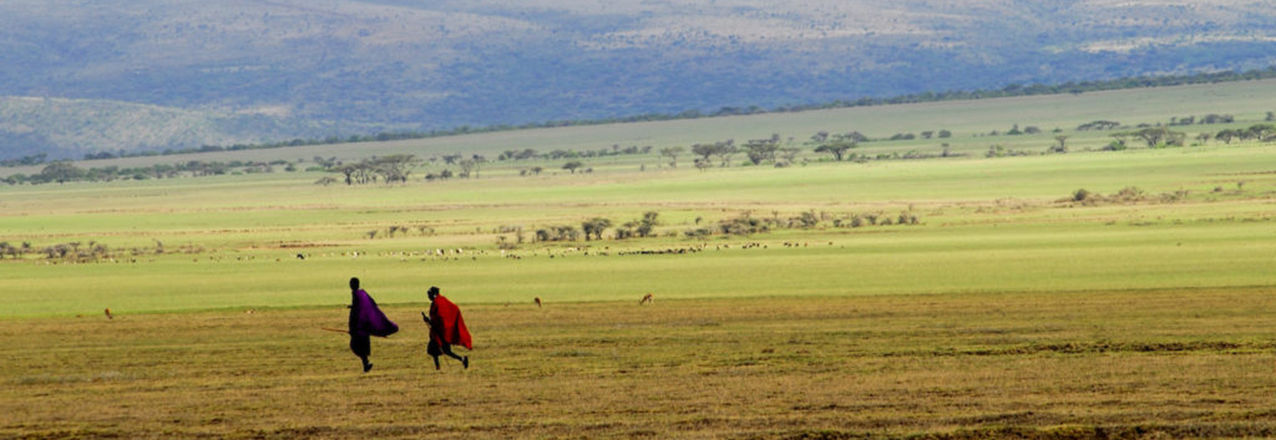Guest commentary by Paul Munro-Faure, Deputy Director, Climate, Energy and Tenure Division, FAO, Andrew Hilton and David Palmer, Senior Land Tenure Officers, FAO.
October is a month that is closely linked to food security. The Committee on World Food Security (CFS), the UN forum for policies concerning food security, holds its 42nd session during October 12-15. At its 38th session in 2012, CFS formally endorsed the Voluntary Guidelines on the Responsible Governance of Tenure of Land, Fisheries and Forests in the Context of National Food Security. These Guidelines were negotiated by governments from all regions of the world with the participation of civil society and the private sector, through the forum of CFS, following a global consultation process led by FAO, the Food and Agriculture Organization of the United Nations.
October 16 commemorates World Food Day, which this year marks the 70th anniversary of the founding of FAO. Land tenure, along with many other factors, was linked to the goal of freedom from want of food at a conference in the USA in 1943, which committed to the founding of a permanent organization for food and agriculture. An interim commission then laid the groundwork for FAO, which was based in Washington, D.C., until its headquarters were moved to Rome, Italy in 1951.
On World Food Day this year, the UN Secretary-General and the FAO Director-General will be joined by the President of Italy and the Italian Ministers for Agriculture and Foreign Affairs for the official celebration at Expo Milano. The theme for the international Expo is fitting: “Feeding the planet, energy for life”. The Expo, which opened in May and closes at the end of October, provides a location for confronting the issues of agriculture, sustainable development and the struggle to combat hunger. A number of its events have featured aspects of land tenure, such as the importance of secure tenure rights for women and the dangers of people losing their tenure rights, for example through agricultural investments that lack appropriate safeguards.
The Voluntary Guidelines on tenure have now become the globally-accepted standard for improving the governance of tenure for all, with an emphasis on vulnerable and marginalized people. While the guidelines were prepared in the context in food security, they also contribute to other development goals, including poverty eradication, sustainable livelihoods, women’s tenure rights, social stability, housing security, rural development, environmental protection and sustainable social and economic development.
The guidelines provide a framework that can be used by governments, civil society, private sector, citizens and philanthropic foundations. They are providing guidance to the Global Donor Working Group on Land, where FAO is collaborating with USAID and other bilateral and multilateral members to improve coordination and the sharing of information on efforts to improve the governance of tenure. This working group meets on 16 October, at IFAD in Rome, as part of its regular program of bi-annual meetings to progress its work plan, which includes during the current period supporting four studies on: i) Open data, innovative technology-based solutions for better land governance; ii) Successful models for partnerships between developed and developing/emerging countries for better land governance; iii) The most promising tools for donors to help make good land governance into a corporate performance standard; and iv) Effective approaches to strengthen coherence across donor governments regarding good practice in land governance. The Working Group is also supporting technical meetings on 14 and 15 October to discuss, respectively, the promotion of the Voluntary Guidelines and their integration into donor supported activities and the alignment of the Land Governance Assessment Framework (LGAF) and other assessment tools with VGGT implementation at country level.
The guidelines are now being used by a wide number of organizations, including FAO and USAID, in their own programs.
As a framework for improving tenure and its governance, the guidelines are expected to be the key reference for work on tenure in support of the achievement of the Sustainable Development Goals, which were formally adopted by the General Assembly of the UN in New York on 25 September.


